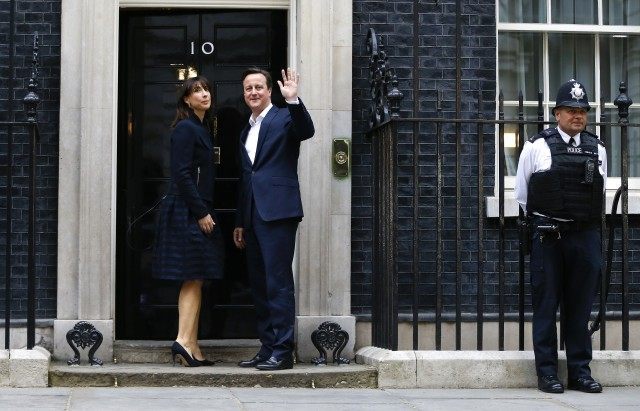David Cameron has won the 2015 general election and HM The Queen has invited him to form a majority administration. At 10pm on Thursday night the exit poll was the first indication the Conservatives had done a lot better than expected, although at that stage not even the pollsters predicted an outright win.
By the end of the night the Tories had a majority of six seats, with a total of 331 MPs. Cameron had won 306 in 2010 which fell short of the 325 needed to form a majority government. The shortfall was the reason he brought in Nick Clegg as a coalition partner.
Labour scored just 232, which is its worst result since 1987 and much lower than the 258 Gordon Brown won in 2010. The party were wiped out in Scotland by the SNP, who shocked the British political establishment by grabbing 56 out of the 59 seats north of the border. Labour’s losses included the Shadow Foreign Secretary Douglas Alexander and the Scottish Leader Jim Murphy.
Ed Miliband tendered his resignation as Labour leader, to come into effect after the VE day celebrations on Friday afternoon. Phillip Collins, former Tony Blair speechwriter, was scathing of Miliband’s performance. He told the BBC: “If you put a load of sixth form seminar left wing nonsense before the electorate in Britain you will lose.”
At 12:30pm Friday the Prime Minister visited the Queen to officially inform her of the election result. On his return he addressed the world’s media saying: “We must ensure we bring our country together. As I said in the small hours of this morning, we will govern as a party of one nation, one United Kingdom.
“That means ensuring this recovery reaches all parts of our country from north to south, from east to west. And indeed it means re-balancing our economy, building that northern powerhouse. It means giving everyone in our country a chance so no matter where you are from.”
He vowed to deliver his entire manifesto, including an in-out referendum on Britain’s membership of the EU, now he has a majority government.
It was a mixed night for UKIP, who put in an appalling performance in terms of seats, with all but one candidate failing to take their seats. Even Nigel Farage lost in South Thanet, but the party did score 3.8m votes and will now receive nearly £600k a year in state funding.
Farage resigned as leader and said that he was taking the summer off. He did not, however, rule out running in that election and Patrick O’Flynn MEP called for him to stand. No date has been set for the leadership election but the UKIP National Executive will meet on Monday to work out were the party goes from here.
Another party leader who fell on his sword was Nick Clegg. The Liberal Democrats fell from 57 seats in 2010 to just eight. It lost a number of big hitters including Charles Kennedy and Vince Cable.
Mr Clegg described the result as a “catastrophe” and a “dark hour”. He said: “Clearly the results have been immeasurably more crushing and unkind than I could ever have feared. For that, of course, I must take responsibility… We will never know how many lives we changed for the better.”
Despite his resignation Clegg will continue as Deputy Prime Minister as all ministers stay in place until the reshuffle brings in new Conservative ministers. That is now expected to happen over the weekend, with a new government having been fully appointed by early next week.

COMMENTS
Please let us know if you're having issues with commenting.